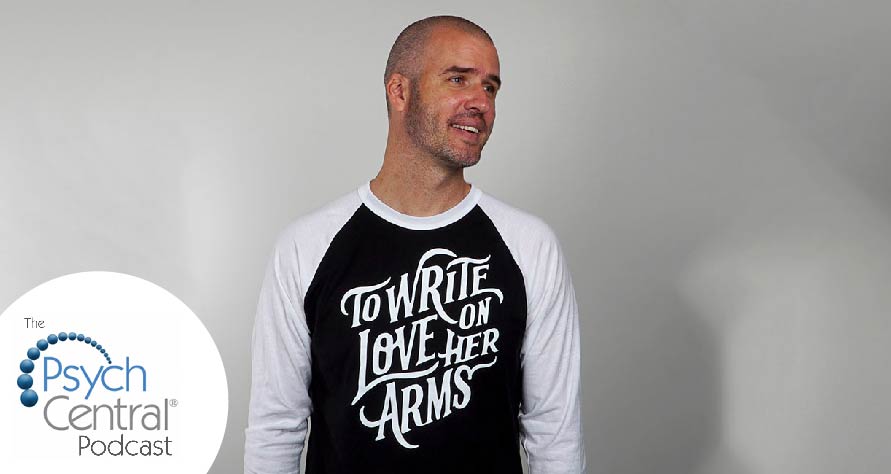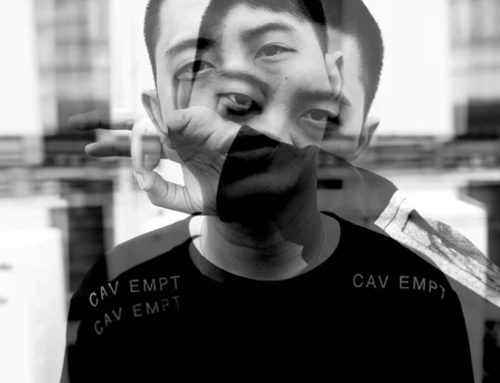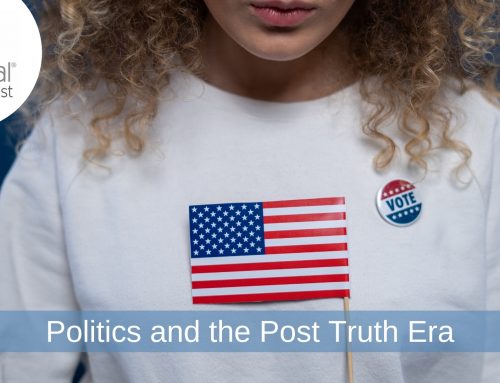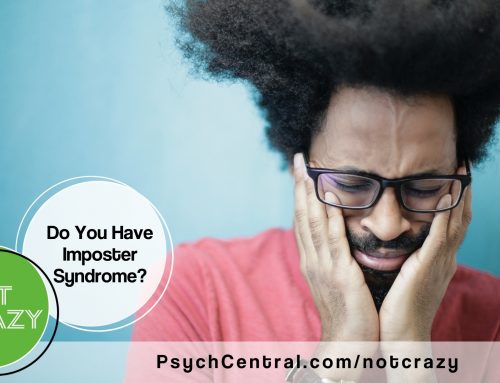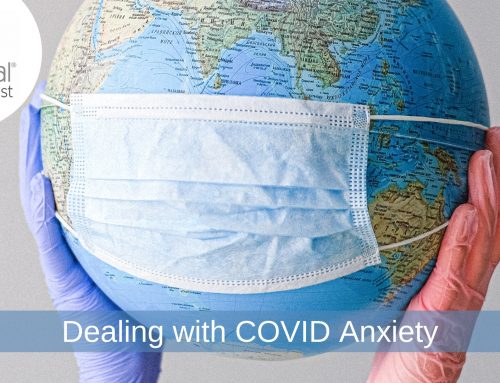In 2006, a 19-year-old woman struggling with drug addiction and a history of abuse came to stay in the living room of a young man, who would later post about his unforgettable 5-day experience getting to know her. As a result, the idea for the non-profit To Write Love on Her Arms was born. In today’s Psych Central Podcast, Gabe interviews its founder Jamie Tworkowski, the young man in the story. Click on the player below to listen now!
SUBSCRIBE & REVIEW
Guest information for ‘TWLOHA Non-Profit’ Podcast Episode
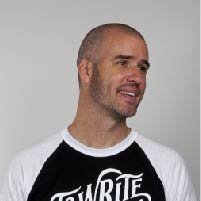
Jamie Tworkowski is the founder of To Write Love on Her Arms, a non-profit movement dedicated to presenting hope and finding help for people struggling with addiction, depression, self-injury and suicide. TWLOHA began in 2006 as Jamie’s attempt to help a friend and tell a story. Since then, the TWLOHA team has responded to more than 210,000 messages from over 100 countries, in addition to investing more than $2.5 million directly into treatment and recovery. Jamie’s TWLOHA blogs are a source of hope and encouragement for thousands, and he speaks frequently at universities, concerts and conferences. Jamie lives in Melbourne Beach, Florida. He loves surfing, music, basketball and being an uncle.
Computer Generated Transcript for ‘TWLOHA Non-Profit’ Episode
Editor’s Note: Please be mindful that this transcript has been computer generated and therefore may contain inaccuracies and grammar errors. Thank you.
Announcer: You’re listening to the Psych Central Podcast, where guest experts in the field of psychology and mental health share thought-provoking information using plain, everyday language. Here’s your host, Gabe Howard.
Gabe Howard: Welcome, everyone, to this week’s episode of the Psych Central Podcast. Calling into the show today, we have Jamie Tworkowski. Jamie is the founder of To Write Love on Her Arms, a nonprofit movement dedicated to presenting hope and finding help for people struggling with addiction, depression, self injury and suicide. To Write Love on Her Arms began in 2006 as Jamie’s attempt to help a friend and to tell a story. Jamie, welcome to the show.
Jamie Tworkowski: Thanks for having me.
Gabe Howard: Well, it’s really excited to have you here, I’ve been aware of To Write Love on Her Arms for a long time, so it’s exciting to talk to you. I don’t want to sound like too much of a fanboy, but you’ve done excellent work out in the community and you’ve really resonated with me personally as someone who lives with bipolar disorder. So first off, thank you for all you do, and it’s an honor to meet you.
Jamie Tworkowski: Oh, man, you’re so welcome. I love that our story and our work somehow ended up on your radar. That’s really cool.
Gabe Howard: Oh, very cool. So for those who don’t know, can you tell people what To Write Love on Her Arms is?
Jamie Tworkowski: Yeah. So you read the mission statement. But I tend to go back to the very beginning. Our nonprofit didn’t start as a nonprofit. It just started as an attempt to help a girl who quickly became my friend. Her name is Renee, and I met her back in 2006 when she was dealing with drug addiction, depression, a history of self injury, suicide attempts, and was denied entry into a local treatment center. And I ended up writing a story about the time we spent together getting to know her. And that story was called To Write Love on Her Arms and shared that online on social media. And I was met with a really surprising response and just learned that her story represented so many people in so many places. Initially started selling T-shirts as a way to help pay for her treatment in central Florida and then in a few weeks realized that this thing had a lot of momentum. And we were looking at the chance to do more than tell one story and do more than help one person. And we were able to over time create a 501(c)(3) and become a nonprofit and build a team and basically continue to invest in professional help in the forms of treatment and counseling. But more than anything, just to communicate a message of hope and encouragement, connect people to resources and try to break down the stigma that surrounds mental health and just let people know it’s okay to be open and it’s okay to be honest.
Gabe Howard: It sounds like Renee was the impetus for all of this, and I believe you said that you didn’t know her very well. What made you put yourself out there in really such a bold and meaningful way for someone that, if I understand correctly, you hardly knew?
Jamie Tworkowski: Yeah. I didn’t know her. So really, the story documents the five days after I met her. And people love to sort of paint me or imagine me as the hero. But I would actually say most of the credit goes to my friend David McKenna, who I was living with in Orlando. I was renting a room from him. And David has actually since passed away, but at the time was in recovery and became very much like a big brother to Renee. And after she was denied entry into this treatment center, she lived in our living room for the following five days. And so I was just staying up late and being curious and getting to know her. And we were trying to keep her safe and keep her smiling and essentially pass the time to when she would be admitted into this local treatment center. So a lot of it was just being moved by getting to know someone. And like you said, it was very much a new friendship.
Gabe Howard: I’m still hung up on, you said that she was denied access to a treatment center even though she needed treatment. I’m just having trouble wrapping my brain around how somebody who is in need of medical care would be denied medical care. Can you talk about that for a moment?
Jamie Tworkowski: Yeah, sort of the absurdity of that is highlighted. Someone just points out like you can’t get into rehab basically because you need rehab. So this particular treatment center, which actually does not exist today. They did not offer an element of detox. And I assume that was insurance-related, space-related. But their particular policy was that she was deemed too high risk in relation to the other patients who were already there. And that was because of the drugs in her system and also because of a self-inflicted wound. And that actually relates to the title of the story that I wrote and what has become the name of our organization. So the night that I met her, she ended up taking a razor blade to her forearm and wrote the word “f**k up.” And I share that not to be shocking or surprising, but simply because it’s real. It’s true. It’s what really happened. And I think it’s ultimately not about profanity, but instead about identity. And I think it really represents how stuck she felt, how sad she felt, how much regret she lived with. How much of a failure she felt like. And maybe, you know, that word might be jarring for a lot of people, but my guess is some version of that word has crossed our mind.
Jamie Tworkowski: And maybe we can relate to how did I end up here? How did my life turn out this way? Oh, my gosh. What have I done? How will I get out of this? And so I think that’s what was happening in that moment. But basically, she was denied entry because of the self-inflicted wound and the drugs that were still in her system. So all of that is the answer to why she was denied entry. And it feels important to point out that hopefully would not often be the case. And it certainly wouldn’t always be the case because this place, which, like I said, eventually went out of business, that this was not the standard entrance process for someone struggling. There are enough hurdles and barriers that keep people from getting help. Whether it’s shame, whether it’s stigma, whether it’s finances. And so the last thing we want to do is highlight another one that makes these places feel intimidating. So I think we love to highlight whether it’s in a moment like this or when I go speak somewhere, just that this would not often be the case.
Gabe Howard: Jamie, thank you so much for saying that, because you’re right, there’s an awful lot of fear in reaching out for help and feeling like you would be rejected. I can only imagine how that would feel. What was it about this friendship that impacted you so much? This wasn’t a romantic relationship. You guys are just friends. This was a friendship that led to something incredible. What was it about this collection of people at this moment in time that that made this create all of this?
Jamie Tworkowski: Yeah, I think you’re right to say it wasn’t just her and I. But it was a small group of people and it was a group of friends trying to care for someone who was really struggling, was really hurting. You know, specifically, we were looking at this five day window where we needed to get her through that so that she could step into treatment and get the help that she really needed and deserved. And actually, a movie was made about primarily the five days kind of our origin story as an organization. And then I think I had never had conversations like this and I had never had an encounter like this. And so I think I was really moved by someone who was not only struggling, not only someone who had experienced a lot of pain, but someone who was also really gifted and really unique and had a lot of life in her. And so I felt like her life was very much a picture of contrast. And I was struck by that and moved by that. And then just wondered if other people might be moved by her story being told. And she loved the idea that maybe someone else could end up getting help. And it all just kind of went from there.
Gabe Howard: Well, I think that that’s absolutely incredible, so let’s fast forward to 2020, today. We know what happened back in 2006 to start To Write Love on Her Arms. Where is the organization today? In 2020?
Jamie Tworkowski: So we’ve been able to grow, you know, in all of those years since we’ve been able to build a team. We’re still based in central Florida. I believe we have 17 full time staff members. And then we always have five or six full time interns who literally come from all over the world to live together, to work together, to work alongside our team. You know, we got our start on Myspace. So we joke that the Myspace has indeed slowed down. But social media has kind of been our heartbeat ever since it’s been sort of home base for us. And we’ve been able to make all the transitions over time, you know, to Facebook and Tumblr, Instagram. We love using social media and the Internet to meet people where they are to communicate, hope to connect people to resources. And then we love the face to face opportunities as well. Whether it’s music festivals, college campuses, we were at a high school yesterday, I think in 2020, we’ve just seen so many surprising doors into different communities open, seen doors open into Hollywood and into professional sports and into the world of gaming. And ultimately, we know that these are issues that affect people. And so we just want to try to bring hope and help to all sorts of people. But it’s been really incredible just to see folks be generous and to be welcoming and inviting us into all these different spaces. We love to do what we did initially for Renee, which is help pay for her treatment, help remove that financial barrier. So that’s a part of what we do. We have a find help tool on our website where people can come and enter their zip code and find a list of local mental health resources, including free and reduced cost services in their community. So there’s a whole bunch of things. We post blogs, we use design. We definitely value creativity. And I think more than anything are trying to move people from a place of hopelessness to hope and maybe not knowing a lot to becoming educated. And so we’re thankful that almost 14 years in, we’re going really strong.
Gabe Howard: Let’s go back to your origin story. I have so many questions about Renee. And one of them is how is she doing now?
Jamie Tworkowski: First off, she’s alive and she’s doing well. She had a baby boy about a year ago. There’s been a lot of highlights. There’s been a lot that she’s been able to pursue from music to writing a book to speaking events, ways that we’ve been able to work together on things. We sell her jewelry. She hand makes these rings that we sell and consistently sell out of in our, you know, in our online store. And then with that, I think she’d be the first to admit that it’s been really hard. It hasn’t been a fairy tale. There’s been relapses. There’s been hard seasons, hard years. But I think it’s fair to say that she’s doing well. And I think as it is for anyone who pursues sobriety and mental health, it’s one day at a time. It’s going to meetings. It’s going to counseling. It’s not trying to do the whole thing alone.
Gabe Howard: I imagine that that would be a lot. And thank you so much to her for allowing you to share. Now I’m looking at your mission statement, and one of the things that I notice in it that is different is self injury. You know, addiction, depression, suicide, that’s all commonplace. A lot of mental health charities highlight that. Can you talk about why you’re so open about self injury?
Jamie Tworkowski: It really was not or is not a strategic thing. It literally just showed up in the life of my friend that all of this started with. And I think because we shared her story in a way that was honest, we continued to hear from people for whom that is personal, you know, and we continue to hear from people who struggle. And especially in 2006, not a lot of people were talking about it, especially in a healthy way or in a way of bringing hope and solutions to it. I think people responded and were surprised and maybe it felt inviting. And so we love to even expand beyond our mission statement and could add anxiety. You could add eating disorders. We think ultimately this is about pain and what do we do with our pain? How do we respond to pain? So we hear from all sorts of people, young and old, who deal with different things. And I think we try not to fixate too much on do you deal with this or do you deal with this? But to even zoom out and just say, hey, we it’s hard to be a person. A lot of the time we deal with grief. We deal with sadness. We deal with mental illness. It looks differently for a lot of people. But how can we quickly move to community and also to professional help?
Gabe Howard: We’ll be right back after these messages.
Sponsor Message: This episode is sponsored by BetterHelp.com. Secure, convenient, and affordable online counseling. Our counselors are licensed, accredited professionals. Anything you share is confidential. Schedule secure video or phone sessions, plus chat and text with your therapist whenever you feel it’s needed. A month of online therapy often costs less than a single traditional face to face session. Go to BetterHelp.com/PsychCentral and experience seven days of free therapy to see if online counseling is right for you. BetterHelp.com/PsychCentral.
Gabe Howard: We’re back discussing the nonprofit To Write Love on Her Arms with founder Jamie Tworkowski. Whenever I talk to people who have started movements and non-profits, they always have a very personal experience that usually is the impetus of all of this. Now, we’ve heard your story with Rene and how it impacted you, but you have a story personally. You’ve been very open about your own struggles with your own mental health issues. Where do you fit into all of this as a person living with a mental health issue or a mental illness?
Jamie Tworkowski: Yeah. And as you said, I’m open with the fact that I am someone who deals with depression. I’ve gone to counseling for years. I’ve been on an antidepressant for years. And I think the silver lining for me is just hopefully it allows me to relate to people. And it puts me in the boat with everyone else, you know. And so I can certainly relate to pain, to struggle with different feeling stuck or off at times. Yeah. And then I think I love that, you know, I literally went to counseling yesterday. And so to be able to speak not hypothetically about the counseling experience, but to be able to talk about how much I’ve benefited in my own life, you know, hopefully that makes it that much more real or authentic when I talk about encouraging people to take that step and, you know, even to be able to talk about meds as someone who has benefited and found stability. So, you know, I don’t wish depression on anyone, but I think I have been able to find the silver lining in my own experience.
Gabe Howard: One of the things that you say is that you realize that the biggest obstacle to mental health challenges and mental illness was the stigma associated with talking about it. How did you realize that? What’s the story surrounding that? A lot of people don’t realize how difficult it is to even say to friends and family that they’re suffering from mental illness, let alone publicly.
Jamie Tworkowski: Yeah, I think we began and I say we honestly had the time, it was just me responding to these messages. I began to see right away that the people were saying, hey, this is something I’ve never talked about. This is a question I’ve never asked. This is something I’ve kept hidden or kept secret. People talked about the shame associated with some of these topics. And I think it happened very quickly where we learned that so many people struggle and yet so many people feel alone and feel like this stuff has to live in secrecy or silence. And certainly we’ve learned over the years that two out of three people who struggle with depression don’t get help for it. And then I would add that I do think it’s getting better in terms of stigma. Certainly challenges remain. But I do think more people are writing about it, talking about it, thinking about it, being open to the conversation almost 14 years later versus when we began back in 2006.
Gabe Howard: One of the things that you want is for society to have a meaningful conversation surrounding mental health and mental illness. What do you think the most important thing that society can do to further those conversations?
Jamie Tworkowski: I think maybe it starts with learning about mental health. With realizing that it shouldn’t be treated any differently than physical health. With realizing that stigma and shame and silence that so much of that is built on lies and bad ideas and ignorance. And I think just writing, there’s such a need not only for education and wisdom, but for compassion, just for the reality that we don’t know what people are walking through, not only strangers, but at times we don’t know what our closest people are dealing with or how they’re feeling. So I think just a combination of those things, just inviting people to become educated and then to really wrestle with what does it look like to see people and to care about people? Many of whom might be dealing with something you don’t currently understand.
Gabe Howard: We’ve talked about 2006. We’ve talked about 2020. Let’s talk about 2025. Let’s talk about 2030. Where do you see your organization heading to the future?
Jamie Tworkowski: We want to continue doing what we’re doing. And obviously there’s a strategic element, but I think there’s also a big part of this where we’ve sort of always treated it like a creative project, especially early on. Just not operated from the place of a five year plan or a 10 year plan. And I think so many of our best moments, best campaigns, relationships, partnerships have been organic, have been things that we didn’t put on a whiteboard or put into a plan. So I think it’s wanting to continue to bring this conversation to as many people as we can. Different communities, different settings. There are new partnership opportunities that we’re working through. And so we continue to sort of smile at the doors that open. And I think we want to continue to be creative. I think we’ll always value writing. We’ll always value language, obviously. We started with a written story. We’ll continue to value design, whether that’s on our site, on social media, t shirts and merchandise that we create. We love to move people through the combination of words and design. And then, I think, hope to just continue to give people more and more ways to get involved, whether that’s in person, whether that’s online all over the world. More and more chances for people to be vulnerable in not only telling our story, but maybe more importantly, in sharing parts of their story and trying to invest in changing and bringing positive change to the stories that they’re connected to. So, yes, I think it’s a whole mix of things.
Gabe Howard: To our listeners who have want to connect with To Write Love on Her Arms, how would they tell their story or how would they get involved or how would they meet with you? Like we want to do something meaningful with your organization. What could they do?
Jamie Tworkowski: It’s a whole range of things. I mean, there’s individual opportunity. We see people get creative with fundraisers and creating events, sometimes benefit events or concerts. But we try to create campaigns and moments throughout the year where people can get involved. We do an annual 5K and we actually see more people do it, what we call virtually. We see more people participate in their local community than actually in person at the race in Florida. We do an annual event that’s a night of music and poetry and speakers and resources, and we see more people watch online than come to the event in Orlando. So I would just invite people to our site to follow us on social media, where we cover a lot of ground, whether it’s speaking events or different events that we get to be a part of. So we love to interact with people face to face, but we respond to the messages and the emails that we get and we’re constantly fielding partnership ideas. And so we would just encourage people to check out the site, follow us on social media. And yeah, I just know that even though our community’s small and spread thin at times, we’re open to ideas. But I think the healthy irony of what we do is we’re not trying to be everyone’s pen pal. We’re not trying to be everyone’s best friend. We have a really small team. So we’re not pointing to ourselves as the final solution. We want to connect people back into resources in their community. We hope we can give people tools to have these conversations in the places that they live. But it doesn’t have to be all about building a relationship with certainly me or even other folks on our team.
Gabe Howard: Jamie, thank you so much for starting the organization. Thank you so much for seeing a need and filling it. Thank you for everything that your organization has done in the last 14 years. And, of course, please keep it up for the future. For people who are interested in To Write Love on Her Arms, what’s your Web site? What is the best entry point for them?
Jamie Tworkowski: Well, first off, thank you for those kind words. It’s an honor and a privilege to do this work. I know our whole team feels that way and I feel like I get to bring my heart to work. And I know not everyone feels that way about their job. And so I try to remain grateful. And we are certainly going to continue to have this conversation and to invite people into it. And then to answer your question. We would love to invite people to our website. It is just our acronym, which is TWLOHA.com. It’s the same on social media. So @TWLOHA, on Instagram, on Twitter, Facebook. And there’s a whole bunch of ways to get involved. And we actually have a section of our Web site dedicated to that. And I joke that it could be as small as buying a t shirt and as big as joining our team in Florida and a whole bunch of ways in between.
Gabe Howard: Jamie, thank you so much for being here and please give a Psych Central welcome and a hug and a thank you to I know you said 17 employees, interns and of course, volunteers all over the country. I know that it’s all of them that makes your organization fantastic. And we, of course, appreciate them. Big props and a big hug as well.
Jamie Tworkowski: I’ll do that, absolutely. Thanks for that.
Gabe Howard: Oh, you’re very welcome. Listen up, everybody. After you are done checking out To Write Love on Her Arms, please, wherever you downloaded this podcast, subscribe. Give us a rating. Share us on social media. And when you share on social media, if you could, do me a solid. Use your words and tell people why they should listen. Don’t be afraid to tag them. Don’t be afraid to email them. We all have friends. When you’re at lunch or dinner or drinks or coffee with your friends, you should be talking about the Psych Central Podcast. I would consider it a personal favor. And remember, you can get one week of free, convenient, affordable, private online counseling anytime, anywhere, simply by visiting BetterHelp.com/PsychCentral. We’ll see everyone next week.
Announcer: You’ve been listening to The Psych Central Podcast. Want your audience to be wowed at your next event? Feature an appearance and LIVE RECORDING of the Psych Central Podcast right from your stage! For more details, or to book an event, please email us at show@psychcentral.com. Previous episodes can be found at PsychCentral.com/Show or on your favorite podcast player. Psych Central is the internet’s oldest and largest independent mental health website run by mental health professionals. Overseen by Dr. John Grohol, Psych Central offers trusted resources and quizzes to help answer your questions about mental health, personality, psychotherapy, and more. Please visit us today at PsychCentral.com. To learn more about our host, Gabe Howard, please visit his website at gabehoward.com. Thank you for listening and please share with your friends, family, and followers.
This article originally appeared on Psych Central as Podcast: A National Non-Profit is Born From a Random Encounter.



